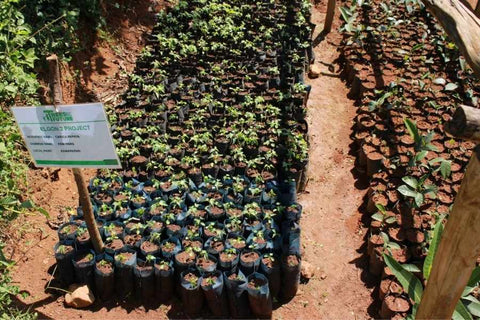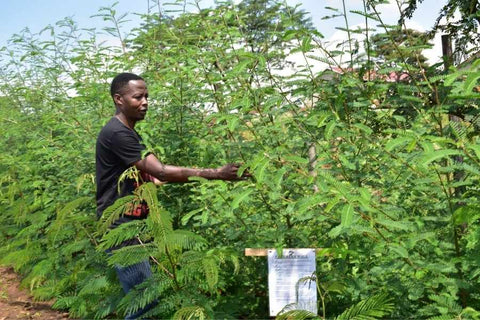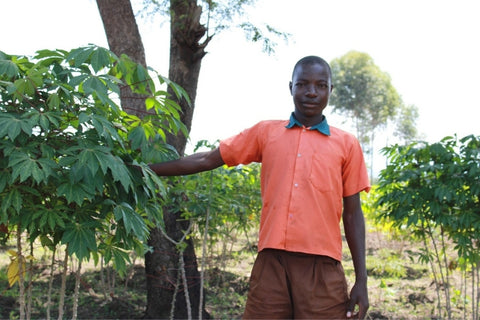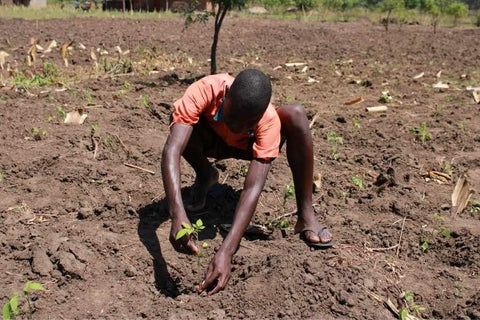It’s not just our cuddly pets that give us a warm, fuzzy feeling - looking after people and the planet does that too. In this month’s sustainability story, we look at a successful ‘Forest Garden’ project in Uganda that we are supporting through our planting partner, Ecologi, and Trees For The Future. An established non profit, Trees For The Future has projects all over the world, working with farmers in areas with severely degraded land to reduce poverty, inequality and migration.

Tree planting in Mbale, Uganda
Uganda sits on the shores of Lake Victoria in East Africa. It has a young population of over 45 million, 20% of whom live in the capital, Kampala, with the vast majority under 25 years of age. Rural to urban migration is high, with many Ugandans seeking to leave their homeland altogether, often taking treacherous routes with traffickers.
In Eastern Uganda in Mbale, the area around Mount Elgon is heavily degraded due to deforestation and over-cultivation. Damaging agricultural methods put a real strain on the land, leaving it almost bare from intensive animal grazing, tree-cutting for wood fuel, and the heavy monocropping of specific crops such as bananas and coffee (often historically imposed on the land by colonial powers). This desertification makes deadly landslides more common and renders the soil infertile, leaving locals unable to feed themselves or their dependents.

Forest Gardens in Mount Elgon
Trees For The Future is helping to establish 400 life-changing ‘Forest Gardens’ in Mount Elgon. This long term programme turns barren plots into permaculture gardens that provide food all year round. Farmers learn how to plant trees to create a protective natural barrier around their garden. Over time, these trees and shrubs provide shade and leaf litter that will help regenerate the soil, while keeping grazing animals at bay. The farmers, many of whom are women, are encouraged to plant fruit trees and a variety of crops to get the most out of the growing season, as this will provide extra nutrition and financial support. They learn about conservation and organic farming methods, and by selling the surplus at market, it gives them a decent income.

Each Forest Garden is approximately one hectare in size, and local farmers are supported and trained over a period of 4 years. By the end of the programme, farmers will have an established Forest Garden which they can use to feed their families and livestock and provide vital income. The Forest Garden method has been shown to reduce food insecurity in farmers from 83% to 14% in the first year alone.
The new trees help provide ecosystem support by attracting birds and insects, promoting soil and water table regeneration, and sequestering carbon from the atmosphere by storing it in the ground. The Mount Elgon project will help plant around 1.6 million trees, improving the lives of local people.

You can learn more about this project here.
06/10/2021 by NatuTeam
